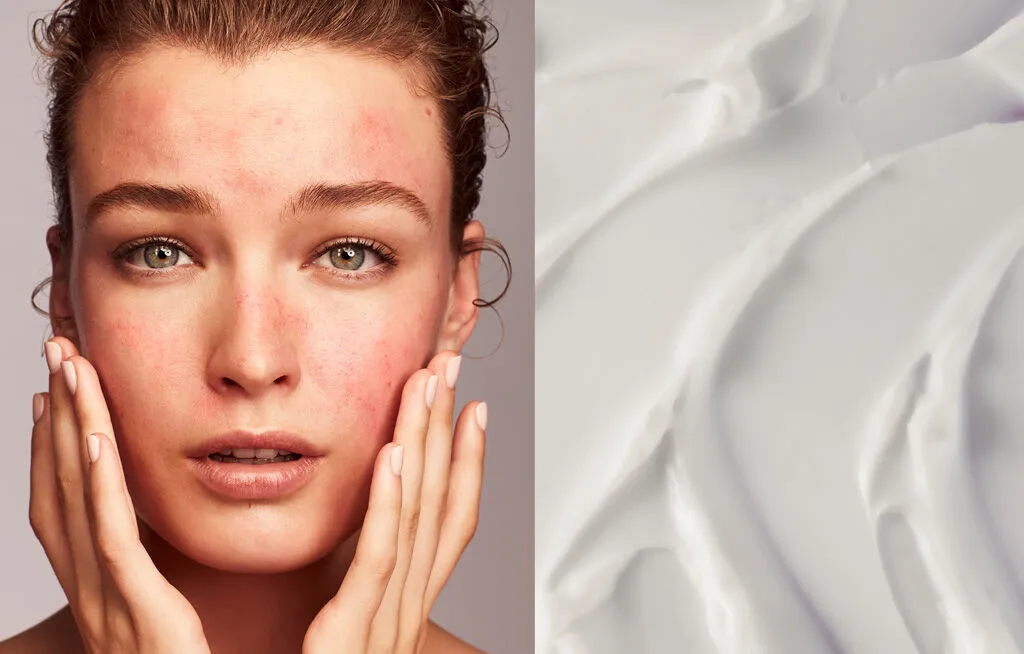Skin irritants usually occur when your skin reacts to a particular substance.
This can be either:
- an irritant – a substance that directly damages the outer layer of skin
- an allergen – a substance that causes your immune system to respond in a way that affects the skin
This is act of sensitive skin, when a new soap or cosmetic able to trigger an outbreak of redness, itching, or stinging.
Time for awareness is coming! Your home could also contain other common skin irritants, such as triple-antibiotic ointments, bandage adhesives, and jewelry containing metals like nickel? As already mentioned above, contact dermatitis (what Skin Irritants do) occurs when your skin becomes inflamed after coming into contact with one or more of these substances. For No More Skin Irritants! Knowing all about skin irritations, what are the sources of them, how to prevent them, ways to combat them and frequently asked questions about them, kindly follow the article.
People with sensitive skin can get two types:
- Irritant Contact Dermatitis
- Allergic Contact Dermatitis
Irritant Contact Dermatitis, what is it?
Dermatitis is the medical term for inflammation of the skin (irritation). This is the most common type of contact dermatitis, accounting for 80 percent of all cases. When an irritating substance comes into contact with your skin, you will frequently experience a burn-like reaction with red, chapped, and dry skin. This skin reaction tends to be more painful than itchy.
Irritant contact dermatitis is typically caused by common substances to which we are repeatedly exposed, such as:
- Harsh soaps
- Detergents
- Drain cleaners
- Acids
- Acetone in nail polish removers
- Alkalis like drain cleaners
- Body fluids, including urine and saliva
- Certain plants, such as poinsettias and peppers
- Hair dyes
- Nail polish remover or other solvents
- Paints and varnishes
- Resins, plastics and epoxies
People’s sensitivity to irritants varies greatly. Typical irritant contact dermatitis symptoms include the following:
- Dry, cracked skin
- Mild skin swelling
- Blisters or painful ulcers on the skin
- Stiff, tight-feeling skin
Who might get contact dermatitis?
Irritant reactions can occur after a single exposure or after multiple exposures over time, whereas allergies require multiple exposures to the same chemical. People who work in certain occupations are more likely to develop contact dermatitis. These occupations may expose you to irritating chemicals or allergens on a regular basis:
- Construction workers
- Florists
- Food handlers
- Hairstylists
- Healthcare providers
- Janitors and plumbers
- Mechanics
- Artists
Allergic Contact Dermatitis
This less common form is a true allergic reaction. The immune system reacts to a substance that comes into contact with the skin in allergic contact dermatitis. After one or more exposures, you may develop an allergy to the substance. In fact, people can be exposed to a substance for years before developing an allergy to it.
Common sources of allergic contact dermatitis include:
- Fragrances
- Preservatives
- Cosmetics
- Poison ivy
- Topical antibiotics
- Rubber or latex
- Metals in jewelry, such as nickel
Some people are also allergic to topical triple-antibiotic ointments sold over the counter. Thousands of different substances can cause allergic dermatitis.
When a person who has become sensitized to an allergen becomes exposed by touching the substance, symptoms, such as itching and skin inflammation, are often delayed. They can show up anywhere from a few hours to as many as four days after contact.
Symptoms of allergic contact dermatitis include:
- Reddened skin
- Darkened, leathery, cracked skin
- Dry, scaly patches of skin
- Burning or intense itching
- Blisters that ooze
- Hives
- Sun sensitivity
- Swelling in the eyes, face or genital area
In addition, some people develop a condition known as photoallergic contact dermatitis. This type occurs only after the skin comes into contact with certain substances and then with sunlight. Among these substances are:
- Lime juice
- Sunscreens
- Aftershave lotions
- Antibiotics and some perfumes
What Causes Skin irritants? Finding the Source of Skin Irritation
If you suspect that a particular product or substance is causing your dermatitis, avoid it and see if your rash improves.
However, pinpointing a specific cause is not always easy. For instance, your eyelids may be chronically dry, red, and flaky, but which product is to blame: eyeshadow, eyeliner, makeup remover, or overnight eye cream?
Sometimes people have no idea what caused their rash; they get a rash but can’t remember what caused it. Or their skin on their face becomes inflamed, leading them to suspect a face product. They may have unintentionally transferred a substance from their hands to their face. The substance has no effect on the hands, but it does have an effect on the more sensitive facial skin.
If you can’t pinpoint the source of the irritation, consult a dermatologist. They will question you about your job, household chores, hobbies, drug and cosmetic use, and other factors to determine the source of the problem.
Your doctor may also order tests. There is no test for irritant contact dermatitis. However, your doctor may perform patch testing to determine your sensitivity to various allergens known to cause dermatitis. Small patches of these substances are applied to your skin for one to two days to see if a rash develops.
Preventing Contact Dermatitis
To help prevent and relieve itching, contact dermatitis, dermatologists are commonly recommend following pre-treatment tips:
- Bathe with lukewarm – not hot – water. Try to limit your bath or shower to just 10 minutes.
- Always use “fragrance-free” lotions, soaps and detergents to minimize irritation. Be wary of products labeled “unscented,” as they might still have chemicals that can irritate your skin.
- As directed by your dermatologist, apply medications before moisturizing. Then, apply your moisturizer to all areas of your skin, including areas treated with medication.
- Wear loose-fitting, cotton clothes. Wool and other rough-feeling fabrics can irritate your skin, causing intense itching.
- Avoid extreme temperature changes. Maintain a relatively cool, neutral humidity environment in your house. Use a humidifier during winter if you are prone to dry skin and eczema.
- Reduce stress, as stress can make your itch worse.
- Oral or topical steroids
- Oral antihistamines
- Skin emollients
Once you’re no longer exposed to the irritant or allergen, redness usually vanishes after a week. But itching, scaling, and temporary skin thickening may go on for days or weeks.
How is contact dermatitis managed or treated?
Treatment for both types of contact dermatitis is the same. Even with treatment, it can take several weeks for the rash to go away. For example:
- Once you’ve identified an offending substance, stay away from it. Wear gloves or protective clothing when doing housework or yard work to avoid exposing your skin to cleaners, weeds, and other substances. If you come into contact with the substance, immediately wash it off with soap and water.
- Learn how to identify poison ivy and poison oak.
- Use unscented, mild laundry detergent.
- If you have sensitive skin on your face, use gentle, soap-free liquid cleansers. Alternatively, use a fragrance-free and dye-free moisturizing soap.
- Do not vigorously scrub your face with a rough washcloth or buff puff. Instead, gently cleanse and pat dry.
- Avoid using antibacterial or deodorant soaps.
- Choose fragrance-free moisturizers, sunscreens, and cosmetics that do not contain acids or botanical ingredients. Physical sunblocks containing zinc oxide or titanium oxide are less likely than chemical sunscreens to cause skin irritation.
- Before using cosmetics and personal care products, test them. Apply a small amount of the new product to a small patch of skin near the inside of your elbow twice a day. You can use the product if no irritation occurs in that area after a week.
Apply petroleum jelly or a thick, moisturizing cream to your skin twice or three times per day to protect it.
Our Spa’s Natural Treatments
There are excellent solutions for your skin’s requirements available here. Hydro Dermabrasion (including Hydrafacial steps as well as moisturizing face skin), Cleansing and Facial massage + Lifting + Steaming could be the solution to your skin problems.
The Mediterranean-Beauty Day Spa will greet you with a complimentary consultation and skin analysis system. Following the identification of your condition, you will be served with the best quality services suitable for your face skin. Some cases, however, require medical or dermatologist attention and are not our part of the role.

Protect Sensitive Skin
After No More Skin Irritants! wherever you live in the Columbus, Ohio areas like Riverlea, Minerva Park, Huber Ridge, Clintonville, Crosswoods, Brookside Woods and Dublin.
Call us for Magnificent Results!
Glow and Shine Gorgeously!

